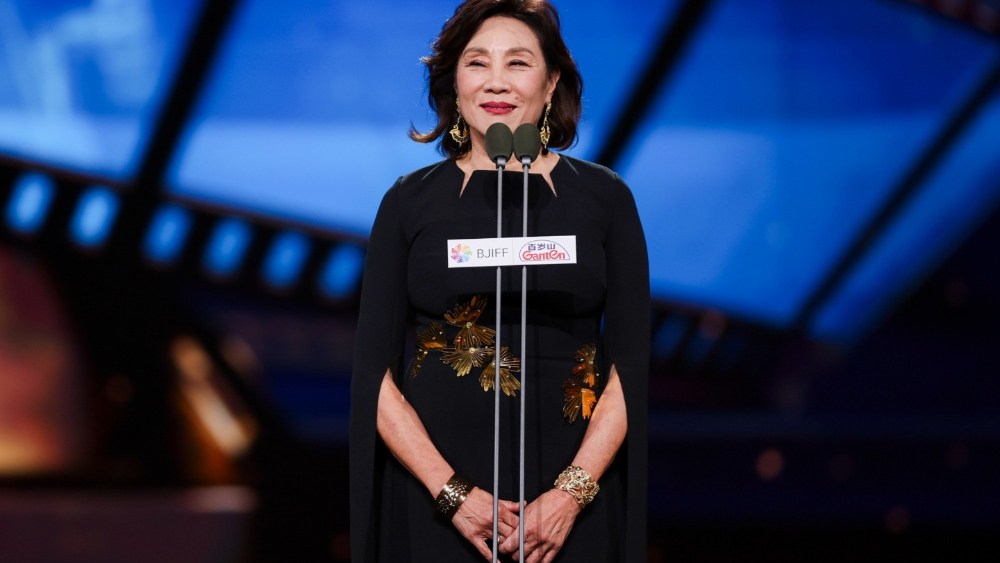Cultural Exchange in Film: Insights from Janet Yang at the Beijing International Film Festival
During her keynote address at the Beijing International Film Festival, Janet Yang, the President of the Academy of Motion Picture Arts and Sciences, articulated the vital role of cultural exchange between the world’s two largest film markets: the United States and China. Yang, an American-born Chinese film producer with extensive experience in both industries, underscored this theme at the festival’s industry forum, aptly titled “How High is the Ceiling for China’s Film Market?”
The Power of Film to Unite Cultures
Yang’s insights were deeply personal and professional, reflecting her belief that film possesses a unique ability to foster connections among people globally. “My personal and professional experiences tell me that film has a unique power to bring people together, and that is why I remain perpetually optimistic about cultural exchange between not only our two nations, but amongst everyone, everywhere in the world,” she stated during her speech.
A Reflection on Industry Representation
As her tenure as Academy president comes to a close in a few months, Yang reminisced about her pioneering efforts to introduce Chinese cinema to Western audiences, highlighting landmark collaborations on major Hollywood productions such as Steven Spielberg’s “Empire of the Sun” and Bernardo Bertolucci’s “The Last Emperor.”
Despite advancements in global cinema, Yang noted a persistent gap in representation, pointing out the underrepresentation of talent from Greater China among the Academy’s nearly 11,000 members. This was particularly striking in light of increasing international recognition, as demonstrated by South Korea’s “Parasite,” which took home the best picture award in 2020, becoming the first film not in English to do so.
Milestones in Chinese Cinema
Yang highlighted pivotal moments in the growth of China’s film industry, particularly the success of “Lost in Thailand” (2012), which grossed over $200 million despite a modest budget and marked the first time China’s local box office surpassed $1 billion.
Celebrating Diversity in Storytelling
The keynote also celebrated the achievements of Asian stories in cinema, with Yang pointing out that “Everything Everywhere All at Once” received seven Academy Awards, including best picture, while “Past Lives” and “Minari” earned nominations in the same category. She praised the recent acclaim for Chinese cinema, specifically mentioning Guan Hu’s “Black Dog,” which won the prestigious Un Certain Regard award at the Cannes Film Festival.
Yang articulated a powerful observation: “These films prove that audiences don’t need to fully understand a culture to be moved by it. Authenticity and specificity invite connection.”
Future Opportunities in Global Collaboration
Emphasizing the importance of international collaboration, Yang encouraged Chinese filmmakers to leverage global opportunities. “For Chinese filmmakers, this is an amazing opportunity to go global, to collaborate internationally, to get films out into the international marketplace, and perhaps to work with those from our diaspora to tell nuanced stories that elevate Chinese representation and deepen global impact,” she noted.
Industry Challenges and Innovations
During her keynote speech, Yang refrained from addressing certain contentious topics, such as the China Film Administration’s decision to reduce the importation of American films, attributed to tariff wars initiated during the Trump administration. Nevertheless, she expressed confidence in the industry’s ability to adapt, remarking that the evolution of filmmaking alongside new technologies necessitates innovation and cross-border collaboration. “In essence, global collaboration is both a pathway to cultural innovation and a strategic economic advantage that benefits us all,” she asserted.
Yang also pointed out ongoing challenges, such as post-pandemic declines in box office revenue and the implications of artificial intelligence on filmmaking. Despite these hurdles, she expressed hopefulness about the future, citing the promise of projects like “Black Myth: Wukong” and the adaptation of “The Three-Body Problem.”
The Rising Chinese Cultural Voice
This year’s festival prominently featured the blockbuster “Ne Zha 2,” which Yang described as a significant cultural moment and a milestone for the industry. “These are all signals of something larger. China’s cultural voice is rising, and it’s claiming its rightful place on the world stage,” she remarked.
In a forward-looking statement, Yang suggested that a Chinese-language film may soon win the best picture Oscar, concluding with a fervent declaration: “I for one, will be cheering.”

